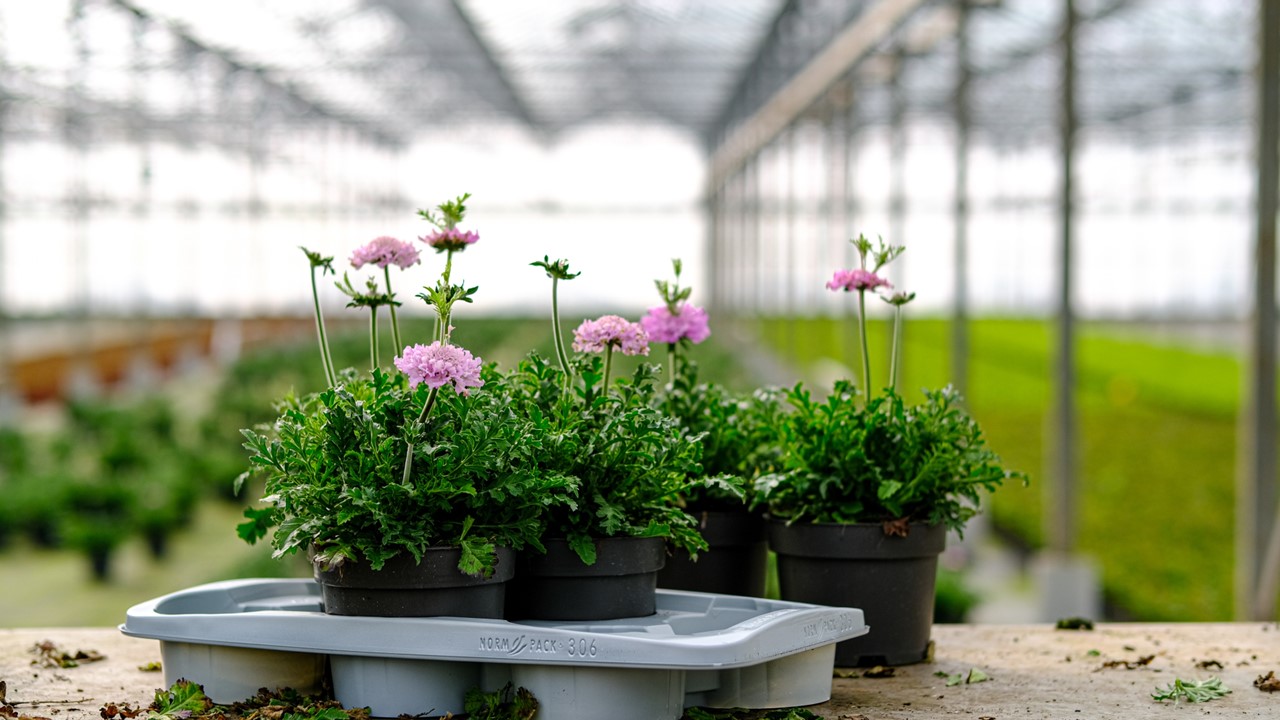Bespoke Recycled Compound Provides Sustainable Solution for Horticulture
16 Sep 2024

The Recover® recycled grey HIPS product, developed in partnership with Enva, is contributing to significantly improved resource efficiency and substantial carbon savings for Desch Plantpak.
Desch Plantpak devises and creates innovative solutions for professional horticulture. These include high-quality thermoformed pots and containers, transport trays, seedling trays, transplant trays and bedding packs. All the company’s products are manufactured from polypropylene, polystyrene, polyester or biopolymers and are designed to provide customers with better production results and higher yields. To achieve this, Desch Plantpak works closely with dealerships and clients in approximately sixty countries from several production locations.
Desch Plantpak is continually extending its range of products for professional horticulture with items that respect the environment through reduced carbon emissions and use of more sustainable secondary resources. Thanks to its D-Grade®, RECOVER® and D-Tect brands, Desch Plantpak can now meet every demand for eco-friendly pots and trays.
One example of this innovation is the company’s Recover® recycled grey HIPS product developed in partnership with Enva. This is made from Post-Consumer Recycled PCR material such as the recycled interiors of refrigerators processed by Enva’s WEEE recycling facilities. This is used to manufacture Transport Trays (including Normpack®) and on request for packs and seedling trays.
HIPS is ideal for use in planting trays as it is lightweight, durable and extremely flexible. As a result, it is also a comparatively high value commodity. Enva and Desch Plantpak worked together to develop a recycled bespoke specification HIPS material for the company’s UK manufacturing facility in Essex.
The Grey HIPS8209, developed by Enva and Desch Plantpak, which is now produced at scale, goes straight into the production process without the need for additives. Desch Plantpak process the granules supplied into a film, which is then transformed into trays via thermoforming. This makes the tray naturally light grey in colour. The Recover® tray is also NIR detectable and Desch Plantpak has received CyclosHTP certification which guarantees optimum processing by waste processors. This ensures the Recover® tray is fully recyclable and aligned with both company’s aspirations to pioneer the development of a more circular economy.
Recover® also comes in a PP (polypropylene) and rPET variants, which can be used to make injection-moulded ornamental and nursery pots, as well as thermoformed flower pots and containers. The hanging pot with Grow&Go® water buffer can also be made using Recover®. These are attractive, durable and also CyclosHTP certified.
Enva’s UK Technical Sales Manager, Isabelle Phipps, said: “Both companies recognised that developing a recycled compound product has clear commercial and environmental benefits. These help Desch Plantpak’s customers to reduce costs and maximise yields while also reducing pressure on finite virgin materials. Working closely with Desch Plantpak’s Quality Team we embarked on a journey to develop samples, and production test materials, which fully met the required specification. Following extensive lab testing, and three production trials, the best performing compound was identified and labelled as newly formed grade – HIPS8209. We continue to collaborate and communicate to ensure stocks are available for a quick turnaround during the peak manufacturing periods”
Desch Plantpak’s UK Operations Manager, Gerry Martin, said: “Under our motto - We care about your plants & our planet - we are continually extending our range of environmentally sustainable products for professional horticulture. The new grade recycled HIPS developed with Enva provides us with a consistent and high-quality supply of material that enables us to produce products that are both fully recycled and recyclable.
Our unique manufacturing process employs sheet extrusion and vacuum forming rather than injection moulding. This requires a specific polymer which comprises low contamination rates with high levels of robustness, impact strength and elongation. It must also be highly flexible. The HIPS8209 product developed by Enva perfectly meets these criteria.”
| View all stories